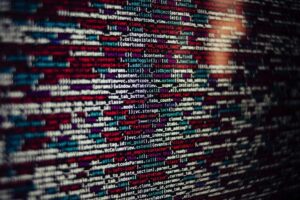What are NFTs?
NFTs are digital cryptographic assets that represent real-world objects like art, music, in-game items, and videos. They are bought and sold online and uniquely encoded with the same underlying software as many cryptos.
The unique code certifies authenticity and ownership of the specific digital asset, as well as any specific licensing given with the purchase of the NFT. NFTs are also generally one-of-a-kind or a very limited collection.
Simply speaking, NFTs transform digital works of art and other types of items, such as sports video highlights, first-time tweets, music albums (Kings of Leon’s March 5, 2021 album release, for example) into one-of-a-kind, verifiable assets that are easy to trade on the blockchain.
What rights do you get when you buy an NFT?
Owners get exclusive ownership rights of the specific digital asset that they are purchasing. Because of the unique code associated with a specific NFT, that NFT can have only one owner at a time. An NFT’s unique data makes it easy to verify its ownership and transfer these types of tokens between owners.
The creator of the NFT can also store specific information inside them. For instance, artists may sign their artwork by including their signature in an NFT’s metadata. While owners get rights to the specific digital asset encompassed by the NFT, owners do not receive ownership of the intellectual property rights protecting the content of the NFT (unless the purchase agreement expressly states that an assignment of the title, rights, and interest of the intellectual property are being purchased by the buyer of the NFT).
Intellectual Property rights are applied and function just as they do with real world tangible works of art. The copyright of any artistic work belongs to the creator, unless the creator assigns, in writing, all title, rights, and interest in the artistic work to someone else. When you buy a copy of an artistic work, you do not own the copyright to the image in that artistic work, unless the above-mentioned assignment was executed.
What is a copyright?
Copyrights give the owner exclusive legal right to reproduce, publish, sell, or distribute an original creative work or to make a derivative work. So, buying an NFT does not give the buyer the right to copy it and sell those copies it to others. It does not give the buyer the right to create other works (other NFTs or more traditional works) based on or that incorporate the original NFT. Under the First Sale Doctrine, buyers may sell their own specific copy of an NFT, but this means that the original buyer should no longer be in possession of it.
This is more difficult to envision or to police with digital works than with tangible artistic works. While most of us have sold or given away our specific copy of a book or a drawing, we routinely copy and send images to someone while retaining our copies of digital items. Because NFTs are tagged with unique bar codes or tokens (which presumably cannot be duplicated), they function more like a tangible work than a digital work, as the unique bar code or token makes the work valuable in conjunction with interest in the artistic content of the work.
Are there intellectual property risks with NFTs?
Yes. While the blockchain and unique code can verify an original owner’s account and track the digital asset through various owners as it is bought and sold, neither of these can verify whether the original owner of the digital asset has copyright ownership of the content within. If it is discovered or confirmed that the original creator of the digital asset has copied another’s work, then the NFT is infringing, rendering it basically worthless and subjecting the original owner and all subsequent sellers as being liable for copyright infringement.
Even if subsequent sellers are not aware of this, innocent infringement is still infringement in the world of copyright. Liability could result in a calculation of actual damages (NFTs have sold for thousands and even millions of dollars) or could be subjected to statutory damages ($750- $30,000) per act of infringement.
Before buying an NFT, research carefully to find out who is the true owner of the copyright to avoid losing both your investment and your earnings.
Pittsburgh Intellectual Property Attorney
For more information or for questions related to NFTs, Intellectual Property, or copyright infringement, contact Kathleen Kuznicki, registered patent attorney with The Lynch Law Group, at kkuznicki@lynchlaw-group.com or by phone at 724.776.8000.





